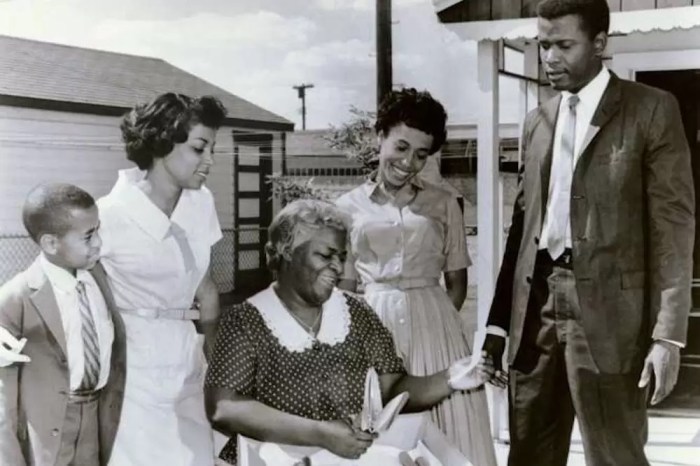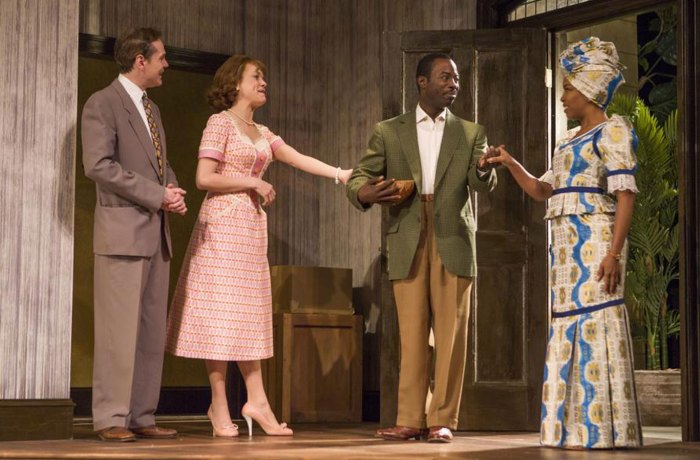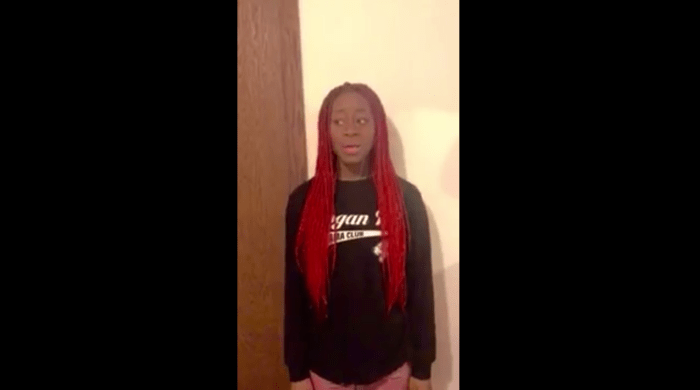A raisin in the sun beneatha monologue – Beneatha’s monologue in Lorraine Hansberry’s “A Raisin in the Sun” stands as a captivating and poignant exploration of identity, dreams, and the complexities of the African American experience. Through her words, Beneatha articulates her aspirations, her struggles, and her unwavering determination to shape her own destiny.
Beneatha’s monologue unfolds in Act I, Scene II, as she engages in a heated debate with her brother Walter. Her words reveal her deep desire for independence, education, and a life beyond the confines of her family’s apartment. She yearns to pursue her passions, to make a meaningful contribution to society, and to break free from the limitations imposed upon her by race and gender.
Character Analysis of Beneatha: A Raisin In The Sun Beneatha Monologue

Beneatha Younger is a complex and multifaceted character in Lorraine Hansberry’s play, A Raisin in the Sun. As the youngest and most educated member of the family, she represents the younger generation’s desire for independence, self-expression, and a better future.
Beneatha is highly intelligent, ambitious, and determined to make her mark on the world. She is a student at the University of Chicago, studying medicine in the hopes of becoming a doctor. Her education and her strong will have made her a role model for her family and community.
However, Beneatha’s aspirations are not without their challenges. She faces prejudice and discrimination from the white society that surrounds her, and she struggles to reconcile her African American identity with her desire to succeed in a world that often devalues her race.
Beneatha’s Monologue: Context and Significance
Beneatha’s monologue in Act I, Scene II, is a powerful and revealing moment in the play. It occurs after her brother, Walter, has argued with their father, Mama, about the family’s plans to move to a new home in a white neighborhood.
In her monologue, Beneatha expresses her frustration with her family’s lack of ambition and their willingness to settle for mediocrity. She argues that they should not be content with living in a small, cramped apartment in a poor neighborhood. She dreams of a better life for herself and her family, a life filled with opportunities and possibilities.
Symbolism and Imagery in Beneatha’s Monologue
Beneatha’s monologue is rich in symbolism and imagery. She uses the image of the sun to represent her hopes and dreams for the future. She also uses the image of a tree to represent her family’s strength and resilience.
These symbols and images help to create a vivid and powerful picture of Beneatha’s character and her aspirations. They also serve to reinforce the play’s themes of identity, family, and the pursuit of dreams.
Literary Devices and Techniques, A raisin in the sun beneatha monologue
Hansberry uses a variety of literary devices and techniques in Beneatha’s monologue to enhance its effectiveness. These devices include metaphor, simile, and foreshadowing.
For example, Beneatha uses the metaphor of a “song” to describe her dreams for the future. She also uses the simile of a “tree” to describe her family’s strength. These devices help to create a vivid and memorable picture of Beneatha’s character and her aspirations.
Beneatha’s Monologue in Relation to the Play’s Themes
Beneatha’s monologue is closely related to the play’s themes of identity, family, and the pursuit of dreams. Her monologue explores the challenges that African Americans face in the mid-20th century, and it also celebrates the strength and resilience of the African American family.
Beneatha’s monologue is a powerful and moving statement about the importance of following one’s dreams, no matter how difficult the obstacles may seem.
Beneatha’s Monologue as a Reflection of the African American Experience
Beneatha’s monologue can be seen as a reflection of the experiences and struggles of African Americans in the mid-20th century. Her monologue expresses the frustration and anger that many African Americans felt at the time, and it also celebrates the strength and resilience of the African American community.
Beneatha’s monologue is a powerful reminder of the challenges that African Americans have faced throughout history, and it is also a testament to the strength and resilience of the African American spirit.
Beneatha’s Monologue in Performance
Beneatha’s monologue is a challenging and rewarding role for an actor to play. The actor must be able to convey Beneatha’s intelligence, ambition, and frustration. The actor must also be able to use their voice and body to create a vivid and memorable picture of Beneatha’s character.
When performed well, Beneatha’s monologue can be a powerful and moving experience for the audience. It can inspire them to think about the challenges that African Americans have faced throughout history, and it can also remind them of the strength and resilience of the human spirit.
Expert Answers
What is the significance of Beneatha’s monologue in “A Raisin in the Sun”?
Beneatha’s monologue is a pivotal moment in the play, as it reveals her deep-seated desires and aspirations, which differ from those of her family members. It highlights the tension between personal dreams and familial expectations, as well as the challenges faced by African Americans in pursuing their goals.
How does Beneatha’s monologue reflect the African American experience?
Beneatha’s monologue resonates with the experiences of many African Americans in the mid-20th century. It speaks to the struggles they faced in overcoming racial discrimination, the desire for education and self-improvement, and the yearning for a better life for themselves and their families.
What literary devices does Hansberry employ in Beneatha’s monologue?
Hansberry uses a variety of literary devices in Beneatha’s monologue, including metaphors, similes, and foreshadowing. These devices enhance the emotional impact of her words and underscore the depth of her character.

